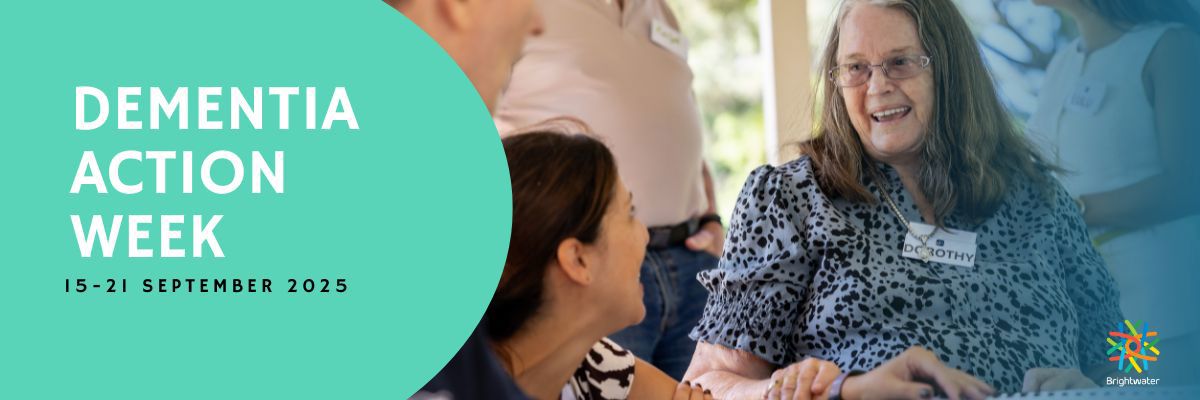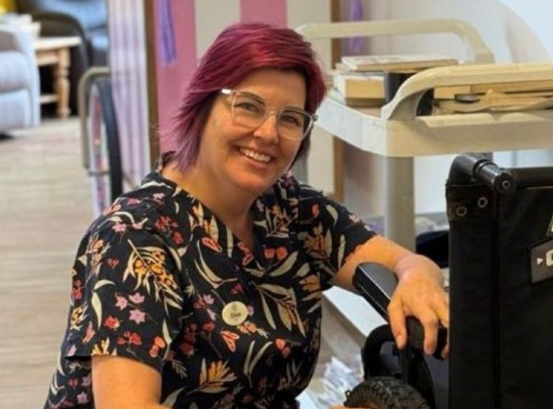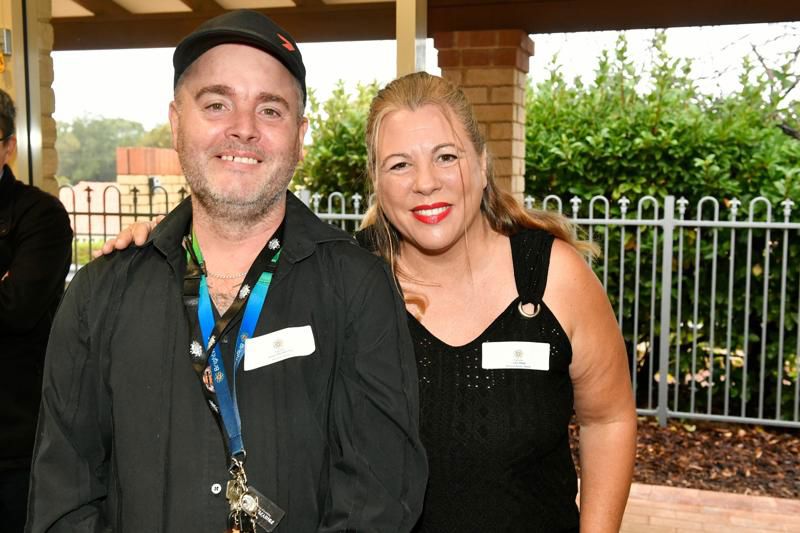
Dementia Action Week: Celebrating Progress and Building Momentum
Dementia Action Week is a chance to reflect on the progress we’ve made and the work still ahead. At Brightwater, we’re proud to be at the heart of this movement, alongside residents, families, partners, and supporters.
Dementia affects millions of Australians, reshaping families, routines, and relationships. That’s why early diagnosis, tailored support, and compassionate care are so important. By keeping dignity, independence, and connection at the centre of our work, we can ensure people with dementia live full and valued lives.
This Dementia Action Week, we want to shine a light on the action we’ve taken to improve the lives of people living with dementia, and the many people who care for them:
Our People Leading Change: Elissa Munro
Progress at Brightwater isn’t only about programs or research; it’s about the people who bring empathy and innovation into daily care. This year, Senior Occupational Therapist Elissa Munro was one of just twelve people worldwide selected for the prestigious Memory Bridge Training Retreat in Indiana, USA.
The retreat is about ending the emotional isolation of people with dementia by listening deeply, connecting with empathy, and seeing the person beyond the diagnosis. Elissa has brought these insights back to Brightwater, enriching our allied health team and helping residents experience more meaningful interactions. Her story is just one of many examples of how Brightwater continues to learn and grow.

Supporting People and Carers through BrightRespite
BrightRespite is one of our most popular programs. It offers a three-day, two-night retreat in a hotel or resort for people living with dementia and their carers, giving carers time to rest while loved ones enjoy engaging activities.
More than a break, BrightRespite provides carers with skills, education, and connections that help families stay strong and loved ones remain at home for longer.
Young Onset Dementia: Purpose-Built Homes and Allied Health Team
In 2025, Brightwater reached a milestone with the opening of two purpose-built homes in Kingsley for people with young onset dementia (YOD). These homes, shaped by the real experiences of people with YOD, provide private rooms, shared spaces, and tailored support – helping residents live with dignity and independence.
Central to this model is the YOD Service Model and reablement approach, supported by Brightwater’s Multidisciplinary Allied Health Team. Their role is critical in enabling people with dementia to maintain skills, stay active, and continue living meaningful lives.
Around 28,000 Australians live with YOD, many still working, raising families, and managing mortgages when diagnosed. Nearly half of families don’t realise dementia can affect younger people. Through our Research Centre and our partnerships across the state and nationally, we are ensuring that services like the Kingsley homes are part of a future where younger people receive timely, age-appropriate, and compassionate support.

Supporting Children and Young Adults through Research
Since 2021, Brightwater’s Research Centre has also explored the impact of a parent’s YOD or acquired brain injury (ABI) on children and young adults. The research found that while young people face disruptions to family roles and routines, they cope better when their needs are recognised.
One of the lasting achievements of this project is a suite of practical resources now available online. These include guides, storybooks, and novels to help children and families talk about change, as well as a workbook designed to help younger children learn about brain health.
You can explore these resources at Brightwater Research Centre.
By sharing these tools, Brightwater continues to support families navigating the challenges of dementia, long after the initial research is completed.
